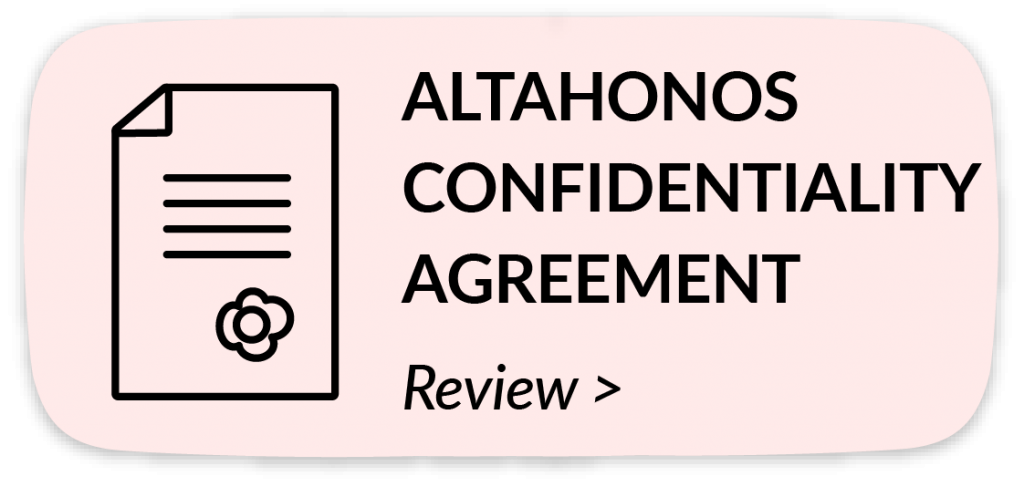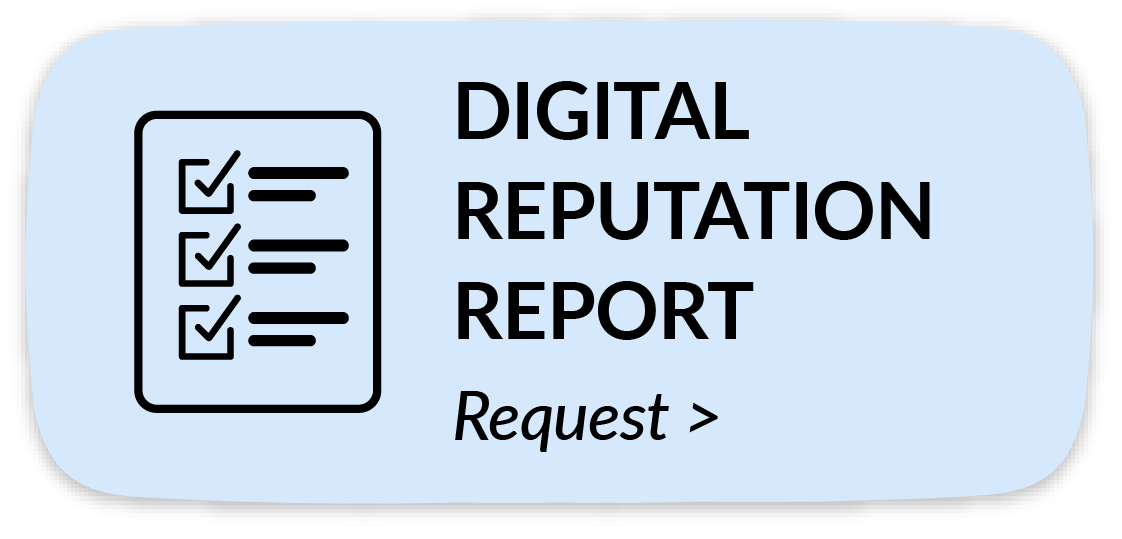
Online brand reputation management is crucial for the success of any business today. The online reputation is the first thing that most customers see. This is used by customers whether they should buy a particular product or not.
In this article, we share some tips and tricks for online brand reputation management.
Online Brand Reputation Management: Online Presence
The good thing about online brand reputation management is that you have a lot of control over the process. One of the things that customers often check is your online presence. This is seen as a reliable way of getting information about the product.
Website
The company’s website is a great way to share in-depth information about the product or service that you are selling. You can create various informational segments discussing different aspects of the product.
Apart from this, you can also list the features and inform customers about how the product will help them. It is very important that you don’t add any information that shows you in a negative light.
Social Media
Millions of people use social media account on a daily basis. These accounts are also used for gaining information about the brands they like or wish to buy from. Such social media accounts can provide a personal insight into the brand, which is not possible through the website.
You should regularly manage and create content for your social media profile. The idea should be to create a high level of engagement for the users.
Here are some key social media accounts that you should regularly update:
- TikTok
Online Brand Reputation Management: Competitor Analysis
A very important aspect of online brand reputation management is competitor analysis. You should be aware of the actions taken by your competitors. The value that you provide to your customers should be higher than the value provided by competitors.
Here are a few points that you should keep in mind while conducting competitor analysis:
- How often is your competitors sharing content?
- The kind of content that potential users are engaging with.
- What is the growth rate of your competitors?
- What strategies are being used by your competitors to share content?
- Which platforms are used by your competitors?
This will give you a good idea of the content that customers want to see.
Online Brand Reputation Management: Reviews
One of the most important parts of online brand reputation management is maintaining positive online reviews. More than 80% of the customers look at online reviews before buying any product. This includes:
- Google reviews
- Yelp reviews
- Trustpilot reviews
- Amazon reviews
- Facebook reviews
Make sure that customers are leaving positive reviews for your brand and product. If you see a constant stream of negative reviews, then you should take immediate action to rectify the same.
Apart from this, you can also increase positive reviews by buying these reviews. This is a common marketing strategy that is used by many businesses today.
Conclusion
Online brand reputation management is a slow process that requires time and energy. You need to show up every day and present your brand in the best light possible. In the beginning, it is a good idea to hire an expert.
This is one of the most important marketing strategies, and you should keep it a priority for your brand.
FAQ
-
What is online brand reputation management?
Online brand reputation management leads to improving the public perception of your brand. This includes any potential customer that might search for you online.
-
How do you manage online reputation management?
Managing online brand reputation is a holistic process. You need to make sure that your website, social media account, and online reviews all show the desired brand image.
-
How do you manage your brand reputation?
Start by focusing on your website and social media accounts. Take a look at your competitors and see what they are doing. Then, start doing the same thing but providing more value for your customers.
-
What is online reputation management in digital marketing?
Online brand reputation management is often used when a company is suffering from a negative image. This can lead to a reduction in customer trust and sales. Reputation management can change this by updating the website, social media profile, online reviews, etc.
Click for more detailed information.

This “Confidentiality and Non-Disclosure Agreement” (hereinafter referred to as the “CONTRACT”) is signed between the customer (hereinafter referred to as “BUSINESS OWNER”) and ” 284 Chase Road A Block 2nd Floor, London, England, N14 6HF United Kingdom, “a resident at the address Altahonos Ltd. (hereinafter referred to as “COMPANY”).
The business owner and the Company can hereinafter be referred to as “Parties” separately and together as “Parties”.
1.Purpose:
The parties will be able to share certain confidential information with each other in the statements they will make to each other during all the negotiations to be made by the parties to be used in case of need.
This contract has been arranged in order to determine the method of exchange of confidential information that the parties will open to each other during their negotiations and to determine the rights and obligations for the protection of confidential information opened by one party to the other.
This contract; does not oblige the parties to open / provide any documents and / or information to each other, except for the requirements of the work subject to fee in the service contract to which this contract is attached.
2.Definition and Scope of Confidential Information:
“Confidential information” that can be exchanged between the parties for the purpose specified in Article 1 of this contract means all of the information of the party that owns them in the nature of commercial and personal secrets and / or under their ownership; without any limitation to these; personal data, technical information, trade secrets, the content of links to be removed, if any, software programs, algorithms, software modules, program source codes, technical features, service plans and technologies, user booklets, marketing information, customer lists, contract terms, records and all information and materials related to the business of the party, all kinds of products, goods and services related to the company itself, its shareholders, affiliates, other persons, customers and consultants to whom it has licensed, the method used to obtain them, trade secret, all kinds of formulas, know-how, It covers all kinds of information such as patents, inventions, designs, customer lists, budget, business development, marketing and pricing plans and strategies, and so on. Confidential information does not include the name and logo of the business owner.
Information with a degree of confidentiality that can be obtained through the use of verbal, visual, examples or models (unwritten) and confidential information and / or the examination, testing and similar methods of projects, documents or components that can be given to the other party by the party that opened the information, is hereinafter ” will be referred to as “confidential information” and will be processed under this contract.
In the event that a verbally opened information other than the confidential information specified, the information given to the other party verbally is confidential, if the party that opened the information clearly states that this information is confidential and informs the other party in writing within 10 (ten) days after opening the information. will be treated as information. All other information will be protected and used like confidential information.
3.Terms of Use of Confidential Information:
The party receiving the confidential information agrees to comply with the following clauses for the protection and use of confidential information indefinitely from the termination or expiration date during the term of this contract and the service contract to which this contract is annexed, or if the contract is terminated in accordance with the article 7 below, or expires, declares and undertakes:
a)Using confidential information only for the purpose given by the other party,
b)Providing confidential information to its own personnel according to the “need to know” principle, provided that they are relevant to the subject, by ensuring that they comply with the terms of this contract,
c)To show the care of the party who opened the confidential information to protect the confidential information that belongs to him at least and is equally important,
d)Confidential information; not to disclose the confidential information to third parties, including its shareholders, affiliates and subsidiaries, without the written consent of the party that opened it
e)Not to copy or duplicate the confidential information, in whole or in part, except where necessary for the fulfillment of the purposes of this contract and the service contract to which it is attached,
f)In accordance with the purpose of this contract, to ensure that the organization, subcontractor or other third parties to whom confidential information is transferred are bound by the same restrictions regarding the storage and disclosure of confidential information.
4.Information Not Covered By Confidential Information:
The party receiving the confidential information will not have any responsibility or liability under article 4 for any confidential information with the following characteristics:
a)If the confidential information is known by the party receiving the confidential information at the time of receipt and this situation can be proven by evidence (s),
b)If it was developed independently by the personnel of the party receiving the confidential information who were not aware of this confidential information and this situation can be proven by evidence (s),
c)If it was known to the public at that time or if it was later notified to the public without any fault of the party receiving the confidential information,
d)If they are legally obtained from a third party without similar restrictions and without violating this contract, following all necessary investigations and investigations regarding that the third party is not under the obligation to disclose confidential information and this situation can be proven by evidence (s),
e)If disclosure to the government of the receiving party within the framework of the laws is necessary, by informing the party who opened the confidential information in advance,
f)If their publication or use is approved by the written consent of the party that opened the information,
g)If the company has used the work of the business owner as a reference in case presentations and its name and logo in its website and documents without using confidential information.
5.State of Irresponsibility:
Direct, indirect, special, incidental or consequential use damage, loss of profit or any other damage to the device, tools, equipment, personnel and / or third parties of the user party due to any error or deficiency in confidential information disclosed by one party to the other party under this contract. The party who opened the information will not be held responsible for any losses.
6.Breach of Contract:
6.1 The parties shall be liable for the damages and damages ruled by the court that may occur within the scope of this Agreement and in particular in case of breach of any of its obligations regarding the protection of confidential information obtained under this contract. Also;
a)If it becomes apparent that confidential information has been disclosed or used, the party will endeavor to prevent further disclosure or use.
- b) The receiving party will immediately notify the party providing the confidential information of the then current conditions and implement all corrective measures requested by the party providing the confidential information.
6.2 The failure of any of the parties to exercise or postpone a right or authority arising from any breach of this contract does not mean that it relinquishes any of its rights in this contract or prevents it from being used later or from exercising its other rights and powers in subsequent violations.
7.Duration of Contract:
If this contract is not extended with the written agreement of the parties, it will remain in effect for 10 (ten) years from the date of signature and will be invalid at the end of its term without the need for another notice.
However, if each party makes a written request to the other party 30 (thirty) calendar days in advance and the other party approves this in writing, they may terminate this contract before the expiration date. In case the contract is terminated for any reason, the confidentiality obligations of the parties will continue indefinitely.
If this contract is terminated or terminated as stated herein, copies of all information and documents belonging to the party that opened the information and held by the other party will be destroyed upon the request of the party that opened the information.
8.Settlement of Disputes:
This Agreement and all disputes that may arise from the execution of the review is to apply the laws of the United Kingdom shall be entitled to look exclusively to the dispute London Courts and Enforcement Directorate.
9.Costs:
The parties agree not to demand from the other party the expenses that may be required for the work to be carried out within the scope of this contract.
10.The Entire Agreement and Modification:
The above articles constitute the entire agreement between the parties and replace any agreements, commitments, and agreements made orally or in writing before regarding the subject of this agreement.
Amendments to this contract can only be made with the written agreement of the parties.
11.Separability of Substances:
If one or more of the provisions of this contract are declared invalid, illegal and unenforceable under any law or regulation, the validity, legality and enforceability of the remaining provisions will not be affected or damaged in any way.
12.Transfer Prohibition:
None of this contract and / or its related rights and obligations can be transferred or assigned to another third party without the prior written consent of the other party.
13.Business Relationship:
This contract; It does not create any rights or obligations to the parties other than the provisions explained here. Also; It cannot be interpreted as the purpose of establishing a partnership or other official business for the parties and that another contract will be made in the future.
14.Notification addresses:
All kinds of notifications, requests, requests and other notices required or permitted to be given in accordance with this contract are prepared in Turkish in writing. It is delivered to the other party by registered mail, electronic mail or a notary. Notifications are made to the e-mail addresses of the parties specified on the first page of the service contract. Changes in these addresses are notified to the other party in writing. The addresses in question are the addresses determined between the parties for notification and the notifications to be made to these addresses are deemed to have reached the addresse.
This contract has been signed by the parties as 14 (fourteen) articles and entered into force after confirming the above points.





